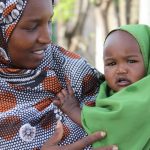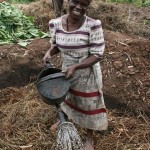For four decades, the longstanding collaboration between the United States Agency for International Development (USAID) and the International Food Policy Research Institute (IFPRI) has been crucial to helping developing countries attain agriculture-led economic growth. The innovative programs and strong evidence base produced through this partnership have contributed to transforming policies and investments for improved food >> Read more
Malawi
Although Malawi has experienced strong per capita GDP growth since 2005, the country still suffers from high rates of poverty and undernutrition To reduce poverty and the challenges that come with it, Malawi needs to focus on agricultural growth—the main source of income for most of its people. In 2010, IFPRI established the Malawi Strategy Support Program (MSSP), with funding from the United States Agency for International Development, to work directly with the Ministry of Agriculture, Irrigation and Water Development and the Department of Agricultural Planning Services of Malawi in promoting relevant in-country research, policy analysis, and capacity building. This program provided research and technical assistance to the Agricultural Sector-wide Approach, which focused on agricultural growth acceleration through efficient resource allocation and development strategy, consistent with the Comprehensive Africa Agriculture Development Programme (CAADP) agenda. Additional research areas include climate change adaptation, farm input subsidy analysis, biotechnology evaluation, and land governance monitoring and implementation.
Below you will find outcomes from IFPRI’s work with the Government of Malawi and other partners.
Malawi Strategy Support Program
In Malawi, USAID and IFPRI launched the Malawi Strategy Support Program (MaSSP) in 2009 to collaborate with the Ministry of Agriculture and Food Security in reaching the country’s agricultural, food security, and poverty reduction goals. Challenges to Soya Export Promotion, a recent examination of the soya export sector by MaSSP, motivated a review and current revision of the Control >> Read more
Enhancing South-South Learning: From Brazil to Africa
Brazil has made impressive progress in reducing poverty. Rural poverty has been cut almost in half, from 51 percent in 2002 to 29 percent in 2011, and family farmers’ incomes grew by 50 percent. These results were achieved partially through Fomento, a set of government-run social programs targeting smallholder farmers. When a program shows such >> Read more
Driving Malawi’s Agricultural Progress
Malawi suffers from poverty with half of its population earning less than $1.25 a day, and high undernutrition rates resulting in stunting of 47 percent of children under the age of five. Although the country has experienced strong per capita GDP growth since 2005, these challenges remain. Agriculture is the main source of income for >> Read more
The Malawi Strategy Support Program
Malawi ranks among the world’s most densely populated and least-developed countries. Because agriculture is the main source of income for most of the population, the development of targeted policies that spur growth in the sector, particularly in smallholder-based agriculture, is critical to meeting the country’s food security and poverty reduction goals.
Regional Network on AIDS, Livelihoods, and Food Security
Motivation Nutrition and access to nutritious foods are vital in the fight against HIV and AIDS. Undernutrition heightens vulnerability to disease transmission, and pairing antiretroviral drug therapies with adequate nutrition increases their effectiveness. Income inequality and food insecurity have also been found to increase the likelihood of exposure to HIV, driving up rates of infection >> Read more





